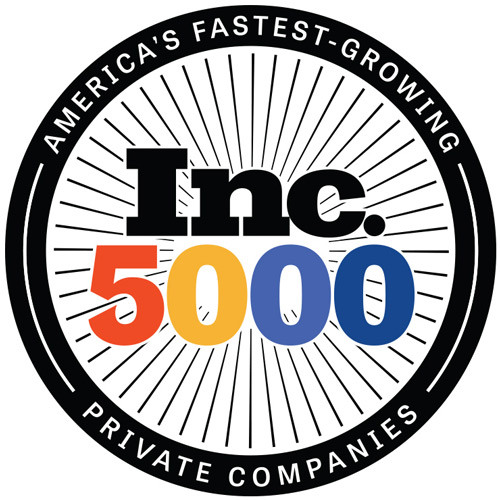Unlocking Efficiency Through Effective Process Management
- Jessica R.
- July 8, 2024
- Edited July 8, 2024
Table of Contents
In today’s business environment, efficiency is not just a goal—it’s a necessity. Organizations across various industries continually seek ways to streamline operations and maximize productivity without sacrificing quality. This is where effective process management becomes crucial. Companies can ensure smoother operations, reduced costs, and improved outcomes by understanding and implementing sound process management strategies.
Introduction to Process Management
Process management is the backbone of operational excellence. It involves the planning, monitoring, and analyzing all aspects of an organization’s operations. This strategic approach helps businesses maintain control over their processes, ensuring they align with the company’s goals and objectives. The benefits of refining process management are substantial, ranging from enhanced efficiency and employee satisfaction to increased customer loyalty and profitability.
The Role of Clarity in Process Management
Clear processes are the foundation of effective management. When every step of a process is defined, understood, and accessible to all relevant stakeholders, the likelihood of errors decreases significantly. Clarity in process management involves documenting procedures and ensuring they are easily accessible. This helps set clear expectations for team members, which in turn enhances accountability and consistency across the board. Implementing tools like flowcharts or visual aids can further clarify complex processes, making them easier to follow and execute.
Flexibility and Adaptation in Managing Processes
Adapting and being flexible is a critical aspect of process management. As market conditions shift and new technologies emerge, processes must evolve to stay relevant and effective. This means regularly reviewing and adjusting procedures to reflect the changing business environment. For example, the shift towards remote work has forced many organizations to rethink their traditional processes to accommodate a dispersed workforce. Embracing flexibility in process management not only helps businesses stay competitive but also fosters a culture of continuous improvement.
Technology’s Impact on Process Management
In the digital age, technology plays a pivotal role in enhancing process management. Automation tools and software systems can handle repetitive tasks, reduce human error, and free up employees to focus on more strategic activities. Data analytics and AI can also provide insights that help refine processes further. For instance, predictive analytics can forecast potential bottlenecks, allowing managers to proactively make adjustments. Integrating technology effectively into process management can significantly boost an organization’s operational efficiency.
Measuring Success in Process Management
To truly understand the impact of process management, measuring its effectiveness is essential. This involves setting clear, measurable goals at the outset and regularly tracking progress against these targets. Key performance indicators (KPIs) such as turnaround time, customer satisfaction rates, and cost savings are valuable metrics to assess the health and efficiency of processes. Regularly measuring these outcomes highlights successes and identifies areas needing improvement.
Challenges in Process Management
Despite its many benefits, process management is not without its challenges. Resistance to change is a common obstacle, as employees may be accustomed to existing workflows and hesitant to adopt new practices. Furthermore, inadequate communication can lead to misunderstandings and inefficiencies. To overcome these challenges, it’s crucial for leadership to engage with their teams, provide comprehensive training, and foster an environment where feedback is encouraged and valued.
Enhancing Team Collaboration through Process Management
Effective team collaboration is another critical aspect that significantly benefits from robust process management. In many organizations, processes involve multiple departments and team members, each with unique roles and responsibilities. When process management is handled correctly, it encourages better coordination and communication among teams, leading to more cohesive and efficient operations.
Streamlining Communication Channels
One of the key benefits of improved process management is the streamlining of communication. By establishing clear protocols and channels for information sharing, organizations can ensure that all team members are on the same page. This reduces the risk of miscommunication and delays, common in more siloed work environments. Project management software can be integral in managing these communications, providing platforms where updates, tasks, and feedback are centralized and accessible to all involved parties.
The Path Forward with Process Management
As we have explored, effective process management is essential for any organization aiming to enhance its operational efficiency. By prioritizing clarity, embracing flexibility, leveraging technology, and consistently measuring outcomes, businesses can improve their current operations and pave the way for sustainable growth and success in an ever-evolving business environment.
Remember, the effectiveness of process management lies in its execution—every step needs to be carefully planned, seamlessly integrated, and regularly reviewed to adapt to new challenges and opportunities. Organizations can unlock their full potential with a committed approach to process management, ensuring long-term success and stability.
Read More:
Business Consultants

Jessica R.
Jessica is a seasoned GMP compliance consultant and technical writer specializing in pharmaceutical manufacturing, data integrity, and quality assurance. With over 12 years of experience working with global pharmaceutical firms, Jessica brings deep industry insights into FDA, EMA, and MHRA regulations.


